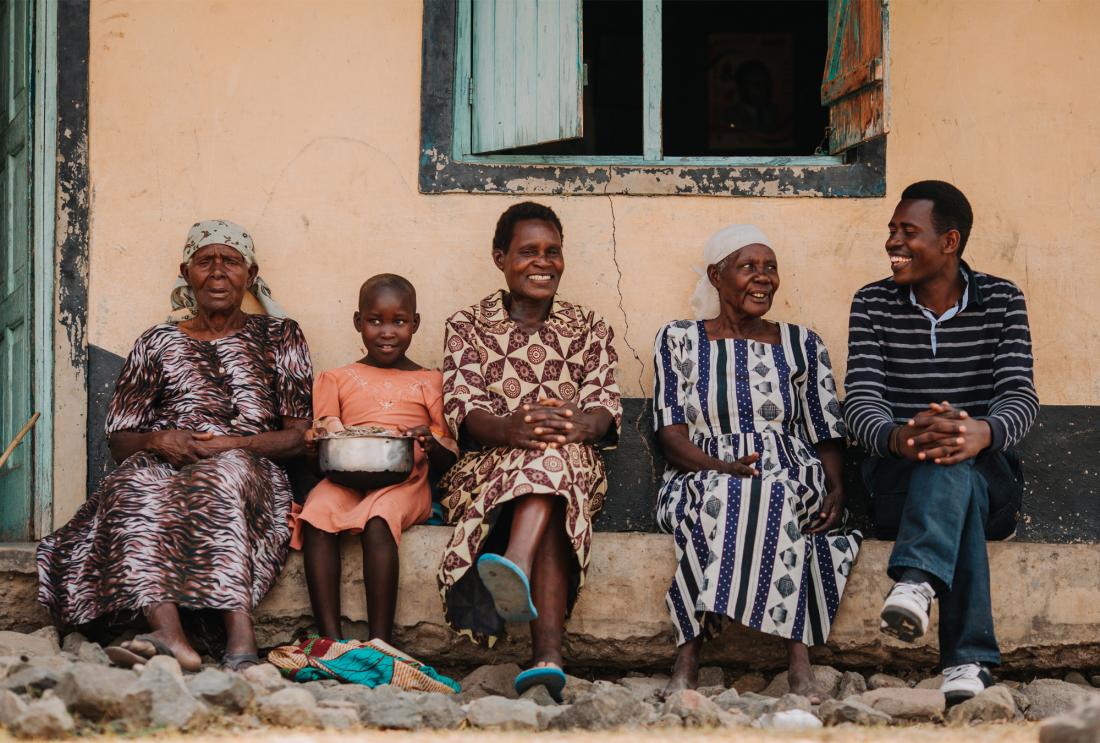Unconditional Cash Transfers and Civic Engagement in Kenya
- Rural population
- Citizen satisfaction
- Social service delivery
- Corruption and Leakages
- Cash transfers
Citizen participation in local civic affairs and in decision-making processes around village resources can be a way to align policies with local preferences, hold politicians accountable, and improve public service delivery. However, there is mixed evidence on how best to improve citizen engagement. In rural Western Kenya, researchers are partnering with GiveDirectly to evaluate the impact of unconditional cash transfers on civic engagement and community participation.
الموضوع الأساسي
Citizen participation in civic life and in community decisions around how to allocate public resources, can be a way to better align policies with citizen preferences, hold politicians accountable, and improve public service delivery.1 However, programs designed to encourage citizen engagement at the local level–such as Community Driven Development (CDD) programs or anti vote-buying campaigns-have shown mixed results.2 3
A widely held view is that increased income can potentially improve citizen engagement. On the one hand, greater income could give people more bandwidth or empowerment to participate in political activities, reduce dependency on material gifts in exchange for political support, or prompt citizens to monitor the use of tax revenue. Conversely, increased income might lower political participation if citizens depend less on, and interact less with, the state.
Direct cash transfers are one way to increase income for poor households. However, a large-scale cash transfer program implemented by an independent agent (e.g. a foreign NGO) could also change the behavior of local politicians and civic leaders. The number of community consultation meetings held may change, or politicians may try to claim credit for the program, which in turn could also influence the level of citizen engagement.
As communities become richer and more equal in income, how does this affect the level of civic participation? How do cash transfers compare with other poverty-reduction programs in terms of impact on civic participation?
سياق التقييم
The NGO GiveDirectly provides unconditional cash transfers equivalent to US$1,000 to poor households in rural western Kenya. These cash transfers amounted to roughly 75 percent of annual expenditure for recipient households in 2015.
In Siaya and Homa Bay Counties, where this study takes place, households have several opportunities for civic engagement. These opportunities include participating in informal community activities and groups, such as public fundraising ceremonies (“harambees”) to support a particular project, as well as self-financed savings and mutual insurance groups, self-help groups, community work groups, and associations of business owners.
There are also more formal opportunities for civic participation. For example, village members can participate in formal meetings to discuss how to allocate government-issued funds. They can also participate in meetings with local village leaders. Village leaders play an important role in village development matters, and in overseeing key local public goods, such as springs and wells. However, they must either find external funding or raise money from local households for public goods.
Households and community groups can also privately request for financial support from prominent local patrons or politicians for public goods or personal assistance (such as medical bills), and politicians report high levels of these requests.4

معلومات تفصيلية عن التدخل
Researchers are partnering with GiveDirectly to evaluate the impact of increased income through unconditional cash transfers for rural poor households on civic engagement. From 2014 to 2017, researchers randomly assigned GiveDirectly’s US$1,000 cash transfers to 1,111 rural villages covering around 98,000 households in Western Kenya in two separate rounds. Half the villages were randomly assigned to receive the cash transfers, and the other half were assigned to a comparison group.
Households received the payments through a mobile money service in three tranches spread two months apart. All households within villages assigned to treatment were offered the cash transfer if they met the eligibility criteria defined by GiveDirectly, which was based on observable poverty indicators, such as having a mud floor or having no telephone. Approximately the poorest 40 percent of households in the area were eligible to receive these unconditional payments. Prior to sending out payments, GiveDirectly communicated with local village leaders, and held village meetings with households to introduce the cash transfer program and emphasized that the payments were coming from an independent NGO.
Researchers will collect village-level survey data and conduct interviews and focus groups with households, village elders, and local civil servants to study the effect of the program on measures of formal and informal civic engagement. These include: participation in civic and electoral processes, both formal and informal; citizens’ sense of political empowerment and democratic attitudes; and private interactions between local leaders and community members.
النتائج والدروس المستفادة بشأن السياسات
Evaluation ongoing; results forthcoming.
